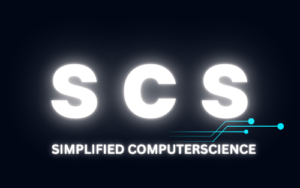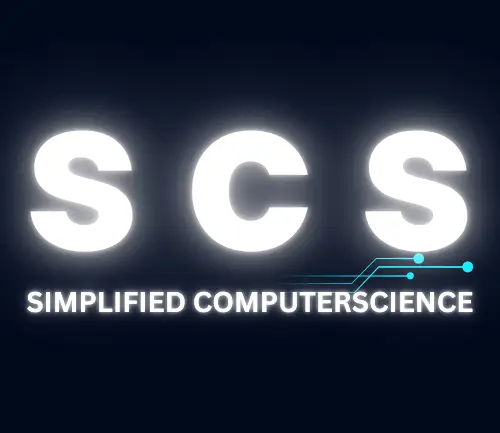Is AI Writing Stealing Your Job? The Future of Blogging in the Age of Artificial Intelligence

Lets explore the impact of AI on the blogging industry, discussing how AI tools are changing the landscape, the potential benefits and drawbacks, and what this means for human writers.
Introduction
Is AI writing stealing your job? The rise of artificial intelligence in content creation has sparked both excitement and concern among bloggers and writers. AI writing tools are becoming increasingly sophisticated, capable of producing high-quality content at unprecedented speeds. This development poses critical questions about the future of human writers in the blogging industry. In this post, we’ll delve into the transformative impact of AI on blogging, exploring its benefits, challenges, and the evolving roles of human writers in the AI age.
Understanding AI Writing Tools
AI writing tools are advanced software programs that utilize machine learning and natural language processing to generate human-like text. Popular tools such as OpenAI’s GPT-4 and Jasper have made significant strides in recent years. These tools analyze vast datasets to understand language patterns and context, enabling them to produce coherent and contextually relevant content based on user inputs. By automating various writing tasks, AI tools are reshaping how content is created and optimized.
Applications of AI in Blogging
Content Generation: AI can create entire blog posts, articles, and other written content with minimal human input. Bloggers can provide a topic or a few keywords, and AI tools can quickly generate drafts, significantly reducing the time required for content creation. This capability is particularly useful for generating initial drafts, brainstorming ideas, and overcoming writer’s block.
Editing and Proofreading: AI tools excel at grammar checking, spelling corrections, and improving readability. They can suggest stylistic changes, catch errors, and ensure that the writing adheres to specific guidelines. Tools like Grammarly and Hemingway App help bloggers produce polished, error-free content more efficiently.
SEO Optimization: AI plays a crucial role in keyword research, crafting meta descriptions, and ensuring that content is optimized for search engines. These tools can analyze trends and recommend keywords that improve the visibility and ranking of blog posts. AI-powered SEO tools like Clearscope and Surfer SEO help bloggers create content that aligns with current search engine algorithms, increasing their reach and engagement.
Benefits of AI in Blogging
Efficiency: One of the most significant advantages of AI writing tools is the time they save. Bloggers can produce high-quality content more quickly, allowing them to focus on other critical tasks such as strategy and audience engagement. AI tools can handle repetitive and time-consuming tasks, enabling writers to allocate their time more effectively.
Consistency: AI ensures that the content maintains a consistent tone, style, and quality. This consistency is vital for brands and bloggers who want to build a recognizable voice and maintain credibility with their audience. AI tools can be programmed to adhere to specific style guides, ensuring uniformity across all content.
Accessibility: AI writing tools make content creation accessible to those who may not have strong writing skills. Entrepreneurs, small business owners, and non-writers can now generate professional content without relying solely on expensive services or extensive training. This democratization of content creation opens new opportunities for diverse voices and perspectives.
Challenges and Concerns
Job Displacement: A significant concern is the potential for AI to replace human writers. As AI tools become more sophisticated, the fear of job displacement grows, prompting discussions about the future role of human creativity and expertise in content creation. While AI can automate many writing tasks, it cannot replicate the unique insights and emotional depth that human writers bring to their work.
Quality and Originality: While AI can produce coherent text, questions remain about the originality and quality of AI-generated content. There is a risk of content becoming homogenized, lacking the unique voice and creativity that human writers bring. Ensuring that AI-generated content is original and free from plagiarism is a critical challenge.
Ethical Considerations: Ethical issues, such as plagiarism and authenticity, are also prominent. Ensuring that AI-generated content is original and properly attributed is crucial to maintaining integrity in blogging and content creation. Transparency about the use of AI in content creation is essential to build trust with readers.
The Future of Blogging with AI
Human-AI Collaboration: The future likely holds a collaborative approach where human writers and AI tools work together. AI can handle repetitive and time-consuming tasks, allowing writers to focus on creativity, strategy, and adding a personal touch to their content. This synergy can enhance the quality and efficiency of content creation.
Evolving Roles: The role of bloggers may evolve to include more oversight and curation. Writers will need to adapt by learning how to effectively use AI tools to enhance their work rather than replace it. This shift may involve developing new skills in AI tool management and content strategy.
Innovative Uses: As AI technology advances, new and innovative applications will emerge. We might see AI tools that can better understand and mimic individual writing styles, create more interactive and engaging content, or even assist with multimedia elements like video and audio. These innovations will continue to push the boundaries of what is possible in content creation.
Conclusion
AI is undoubtedly transforming the blogging landscape, bringing both opportunities and challenges. While AI writing tools can enhance efficiency, consistency, and accessibility, they also raise concerns about job displacement, quality, and ethics. The future of blogging will likely involve a harmonious collaboration between human creativity and AI efficiency, leading to richer and more diverse content creation. As we navigate this evolving landscape, it’s crucial for bloggers to stay informed and adapt, leveraging AI to complement and enhance their unique voices.
What are your thoughts on AI in blogging? How do you see it impacting your writing process? Share your views in the comments below!


